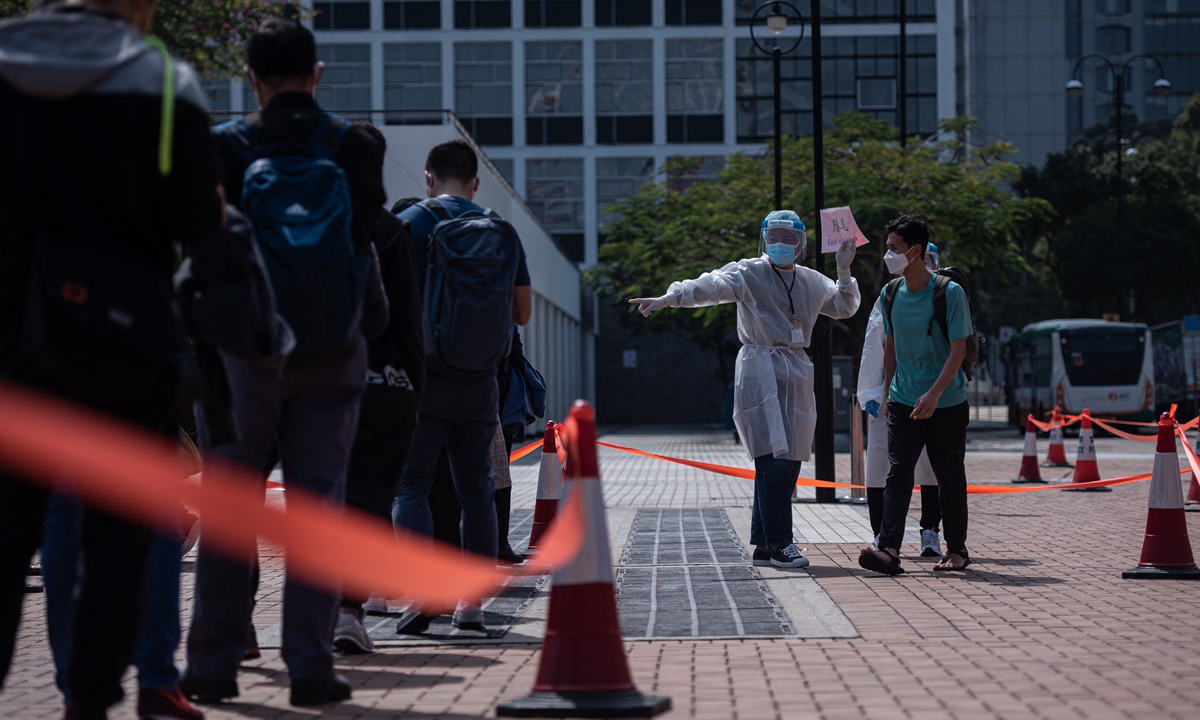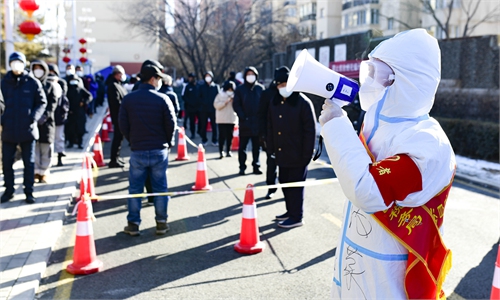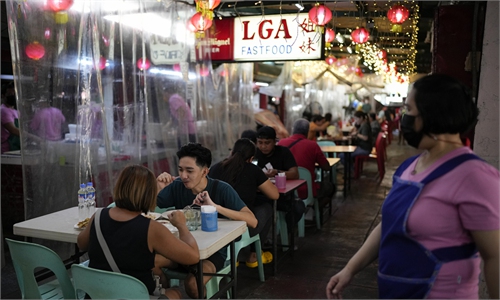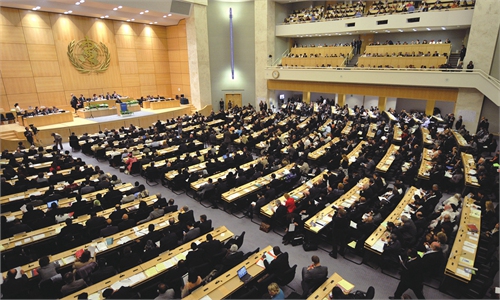China's top political advisory body defends 'dynamic zero-COVID policy,' shrugs off adjustment

People line up for COVID-19 testing in Hong Kong on February 12, 2022, as city authorities scrambled to ramp up testing capacity following a record high of new infections. Photo: AFP
The dynamic zero-COVID policy is the correct anti-epidemic policy for China at the moment, said the spokesperson for the latest session of China's top political advisory body, while discarding the possibility of a change of the policy in the near future.
"China's anti-epidemic policy is in line with the country's national conditions and the laws of science. It is effective and reflects the people-centered philosophy," Guo Weimin, spokesperson for the fifth session of the 13th National Committee of the Chinese People's Political Consultative Conference (CPPCC), said at a news conference on Thursday.
Members of the CPPCC hold that China has been able to contain sparse COVID-19 outbreaks rapidly since the country has normalized the anti-epidemic procedures, Guo mentioned.
The spokesperson also highlighted that "in China, the balance between epidemic prevention, social development and livelihood protection has been generally kept, which is in sharp contrast to the situation in some countries where the people experienced waves of COVID-19 and the number of deaths kept increasing."
"As a developing country, with a population of 1.4 billion, if we do not take effective measures the consequences are unimaginable," Guo said.
He pointed out that the perception that China's dynamic zero-COVID policy has affected the global supply chain is incorrect. Instead, the policy ensured that China was among the first countries in restoring economic growth, which guarantees the stability of global industrial supply chains.
"In 2021, China's foreign trade scale and international market share all set record highs, injecting power to the global economic and trade recovery," Guo remarked.
In addition to its active role in international trade, China is also providing assistance to the international community to help other countries overcome the epidemic and return to normality as soon as possible.
China has provided 150 countries and 13 international organizations with a large number of masks, protective clothing, respirators and testing equipment, sent 37 medical expert teams to 34 countries, and provided more than 2.1 billion doses of vaccines to more than 120 countries and international organizations. This aid has helped other countries improve their capacity for epidemic control and emergency treatment.
In the future, China will pay close attention, study and judge the development of the epidemic at home and abroad, Guo noted, adding that "we will strengthen scientific prevention and control with precise measures and strive to control the epidemic, at a higher level with a smaller social cost, to guarantee the sustainable, healthy and stable development of the economy and society."
In February, chief epidemiologist with the Chinese Center for Disease Control and Prevention, Wu Zunyou, also told the Global Times that China will not adjust its dynamic zero-tolerance policy for now regardless of how hard Western media outlets and observers slander it.
As long as China has no new measures to prevent imported strains of the coronavirus from triggering large-scale transmission and with no effective ways to contain the epidemic, the policy will stay the same "because relying only on vaccines cannot contain COVID-19," Guo highlighted.
The National Committee of the Chinese People's Political Consultative Conference (CPPCC), the annual session of China's top political advisory body, will start on Friday in Beijing.



